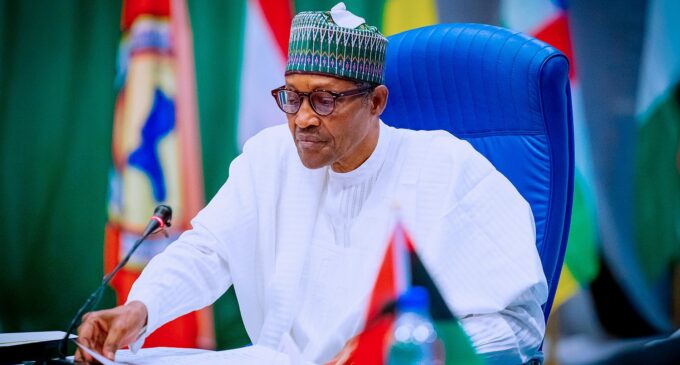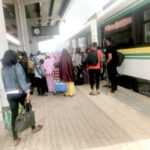President Muhammadu Buhari last Thursday inaugurated the Lagos-Ibadan rail line which came into full commercial operation the following day. He described the project as a milestone in the government’s effort to revitalise the moribund railway system. The president pledged that his administration would continue to prioritise the railway system because it was one of the best ways to transform industrial and economic activities in the country.
The importance of the Lagos-Ibadan rail line cannot be overemphasised as Lagos is the nation’s economic gateway. The rail line will enable importers to transport goods directly from the quay in Apapa to the Inland Container Depot in Ibadan from where they would be distributed to other parts of the country. The project is also expected to greatly ease the perennial congestions in Apapa and Tin Can Island and the associated gridlocks in those axes. It will further relieve the pressure on the ever busy Lagos-Ibadan Road which is virtually the only route of passengers and goods in and out of Lagos.
- EFCC combs Abuja, Lagos, P/Harcourt estates for loots
- B/Haram gets new commanders after Shekau’s death
We commend the government for executing the project and providing a modern rail system. However, we strongly urge that this should be used as an impetus by the federal government to work hard on other rail projects across the country and deliver them on time. In this vein, we welcome the president’s promise that his government will now embark on the completion of the outstanding segment of the rail system which runs from Ibadan to Kano and then to Maradi in Niger Republic.
It is expected that when completed, this will position Nigerian ports as the choice for import and export business of the people of landlocked Niger Republic. This will be beneficial to the economy through new business opportunities.
The advantages of rail transport system for any country cannot be overemphasised. It has larger capacity to move passengers and goods; it is dependable and has speed; it is safer, cheaper and is the economic backbone of any nation. Of all public works projects, the rail system is the largest in terms of employment opportunities and business generation.
However, it is sad to note that despite all these advantages the rail system in Nigeria was allowed to decay. The rate at which the rail transportation system declined over the years is phenomenal. For example, in 1964, the railway recorded passenger volume of over 11 million, while freight was nearly three million. But by 2003, the passenger volume plummeted to 1.6 million, while freight was virtually zero.
By early 2013, the only operational segment of Nigeria’s rail network was between Lagos and Kano. Even then passenger trains took 31 hours to complete the journey, according to figures provided by researchers. It is shocking how easy it was for Nigeria to degenerate to such level. The implication for the nation is that we transport both passengers and freight by road, thus making the roads to deteriorate faster than expected.
It is to the credit of the Buhari administration that it has been able to commission three key and modern railway projects in a span of about four years. The first was the Abuja-Kaduna project which was commissioned in 2016, then the Warri–Itakpe rail line which is fully operational for passenger and freight service, and construction is underway on an extension to Abuja.
Another area the government should pay attention to is to integrate the rail, sea and air transportation systems. It is worth pointing out that except for Abuja, no airport in Nigeria is linked to the rail system. The same thing can be said about the nation’s seaports where at present only Apapa and Port Harcourt are linked to the railway network. Since rail transportation is capital intensive, the government should encourage private participation in railway network development and expansion. There are other ambitious rail projects on the government’s drawing board; some of which are planned to be executed within the lifespan of the Buhari administration. Interested investors should be given the opportunity to participate.
However, under no guise should the government concession the ones it has already built and which are running efficiently and profitably because of Nigeria’s nasty experiences with privatisation.
As the nation begins to rebuild its railway system, great care must be taken to guard against the factors that ruined its once vibrant and efficient railways that flourished from independence in 1960 up to the mid-80s.

 Join Daily Trust WhatsApp Community For Quick Access To News and Happenings Around You.
Join Daily Trust WhatsApp Community For Quick Access To News and Happenings Around You.


